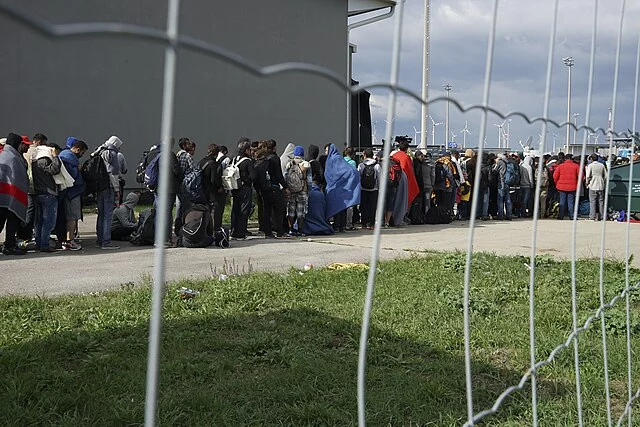Between borders and beliefs: Germany’s ongoing struggle with immigration
A decade after the 2015 refugees crisis, Germany is at another crossroads: between empathy and exhaustion, between humanity and hard reality. The German federal government is currently reviewing whether deportation to Syria could be possible again – a topic that is widely discussed both in society and on social media.
In a recent interview, Friedrich Merz, chancellor of Germany spoke about the problem in the country’s image; a statement that has sharply divided opinions. While some consider his words as a long-overdue truth, others view them as a dangerous generalisation. The discussion shows how deeply Germany remains divided on immigration and integration.
A nation torn between duty and doubt
At present, about 1.3 million people of Syrian origin live in Germany. Many arrived in 2015 and 2016, but now that the Syrian War has partly subsided and conditions have stabilised in some regions, the German government under chancellor Merz is planning to deport those refugees back to their home country. By doing so, national capacities including overloaded social systems, housing shortages, and high living costs can be relieved.
On one hand, Germany urgently needs skilled workers and on the other, concerns are growing that the country can no longer support the increasing number of asylum seekers. That raises an important question: Is it morally right to send refugees back once their country becomes somewhat safer, or should Germany continue to provide them protection and support?
The public image of refugees remains conflicted […] negative examples shape public perception, while the majority who contribute positively go largely unnoticed.” – Magdalena Gaass
A call for fairness
Many Germans demand “fairness for the locals”. Critics argue that refugees often receive more government aid than citizens who have worked their entire lives. Pensioners, low-income families, and minimum-wage earners in particular feel left behind. They call for the law that states that those who have no longer the right to stay should leave the country, to be upheld.
However, Syria is still not a safe country. Reports describe ongoing violence, economic problems, destroyed cities, and a lack of infrastructure. Many Syrians have built stable lives in Germany, they work, their children go to school, and they have integrated into society. Deporting them now would contradict Germany’s core humanitarian values.
Still, the public image of refugees remains conflicted. A few individuals who commit crimes tarnish the reputation of the many who make an honest effort to integrate. Serious offences by refugees often dominate headlines, but statistics show that most are not involved in criminal activity. Nevertheless, a single crime can reinforce mistrust and fear, fuelling a cycle of prejudice and extremism.
Among refugees, there are significant differences. Many have learned German, found employment, and adapted to the country’s rules and culture. Others, however, are primarily seeking financial security, and show little interest in integration. Some reject German values and resist cultural exchange. As a result, negative examples shape public perception, while the majority who contribute positively go largely unnoticed.
This dynamic unfortunately benefits right-wing parties such as the Alternative for Germany (AfD), which became the country’s second strongest party in the last election. A clear sign that many people feel unheard by the political establishment.
What does humanity mean today?
What does humanity mean in times of political strain? When does a country’s responsibility end toward people who sought its protection? The reality is that integration can only succeed when both sides participate. Those who come to a new country, for whatever reason, should strive to become a part of it, while society must be willing to accept and support that effort.
Between empathy and political pragmatism, the debate over Syrian refugees shows how complex it is to impart justice for everyone. Germany continues to wrestle with what humanity means today, which unfortunately is not easy to answer.






